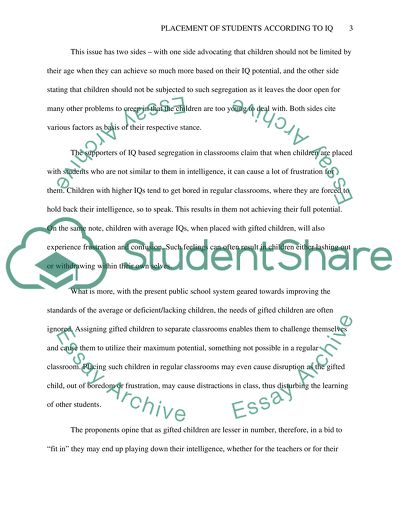Cite this document
(“Should students be assigned to classrooms according to their IQ level Research Paper”, n.d.)
Retrieved from https://studentshare.org/family-consumer-science/1410550-should-students-be-assigned-to-classrooms
Retrieved from https://studentshare.org/family-consumer-science/1410550-should-students-be-assigned-to-classrooms
(Should Students Be Assigned to Classrooms According to Their IQ Level Research Paper)
https://studentshare.org/family-consumer-science/1410550-should-students-be-assigned-to-classrooms.
https://studentshare.org/family-consumer-science/1410550-should-students-be-assigned-to-classrooms.
“Should Students Be Assigned to Classrooms According to Their IQ Level Research Paper”, n.d. https://studentshare.org/family-consumer-science/1410550-should-students-be-assigned-to-classrooms.


